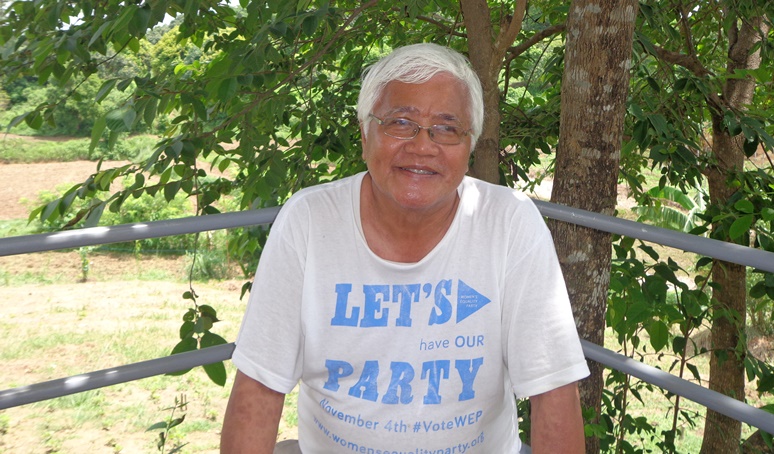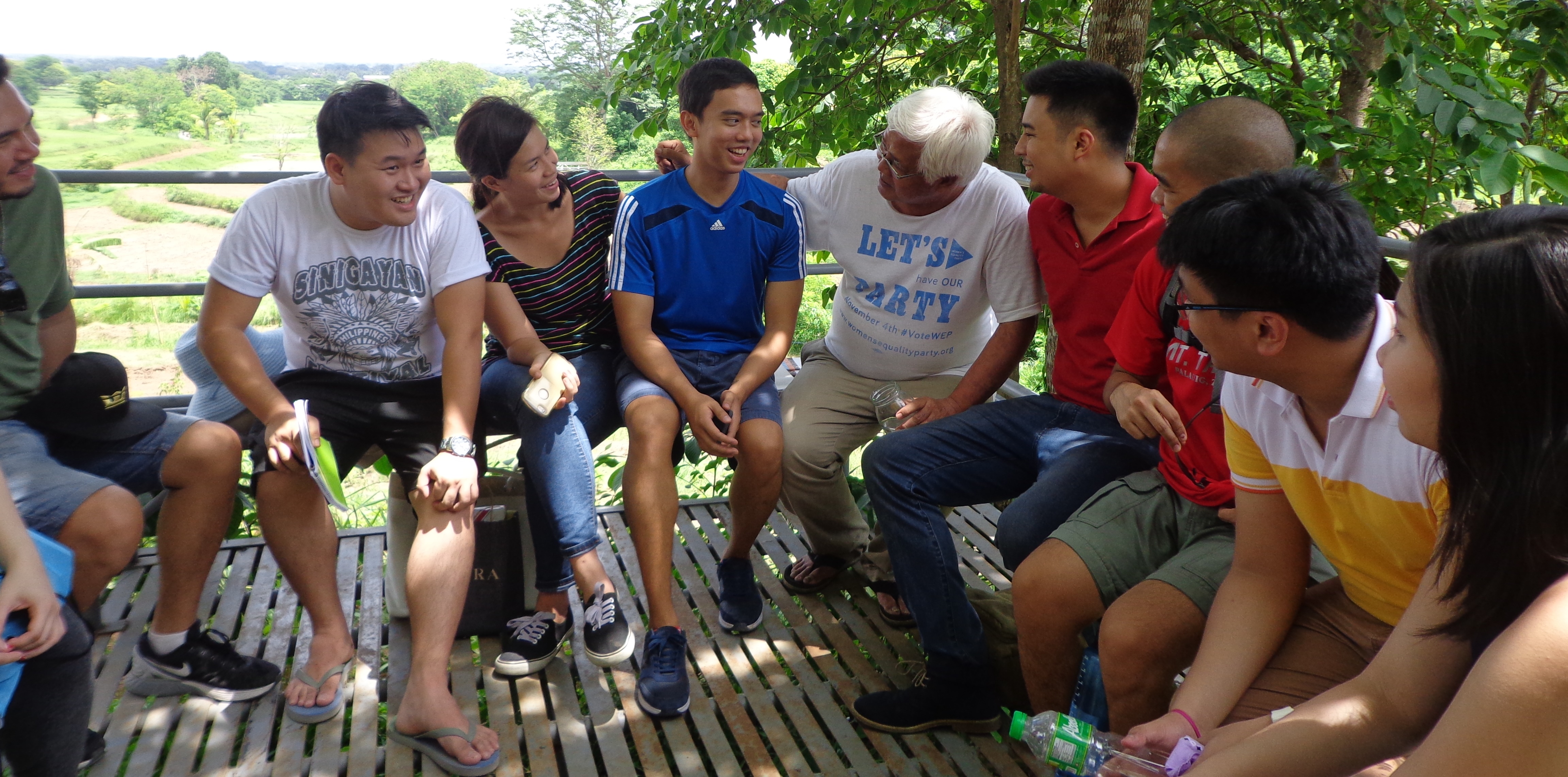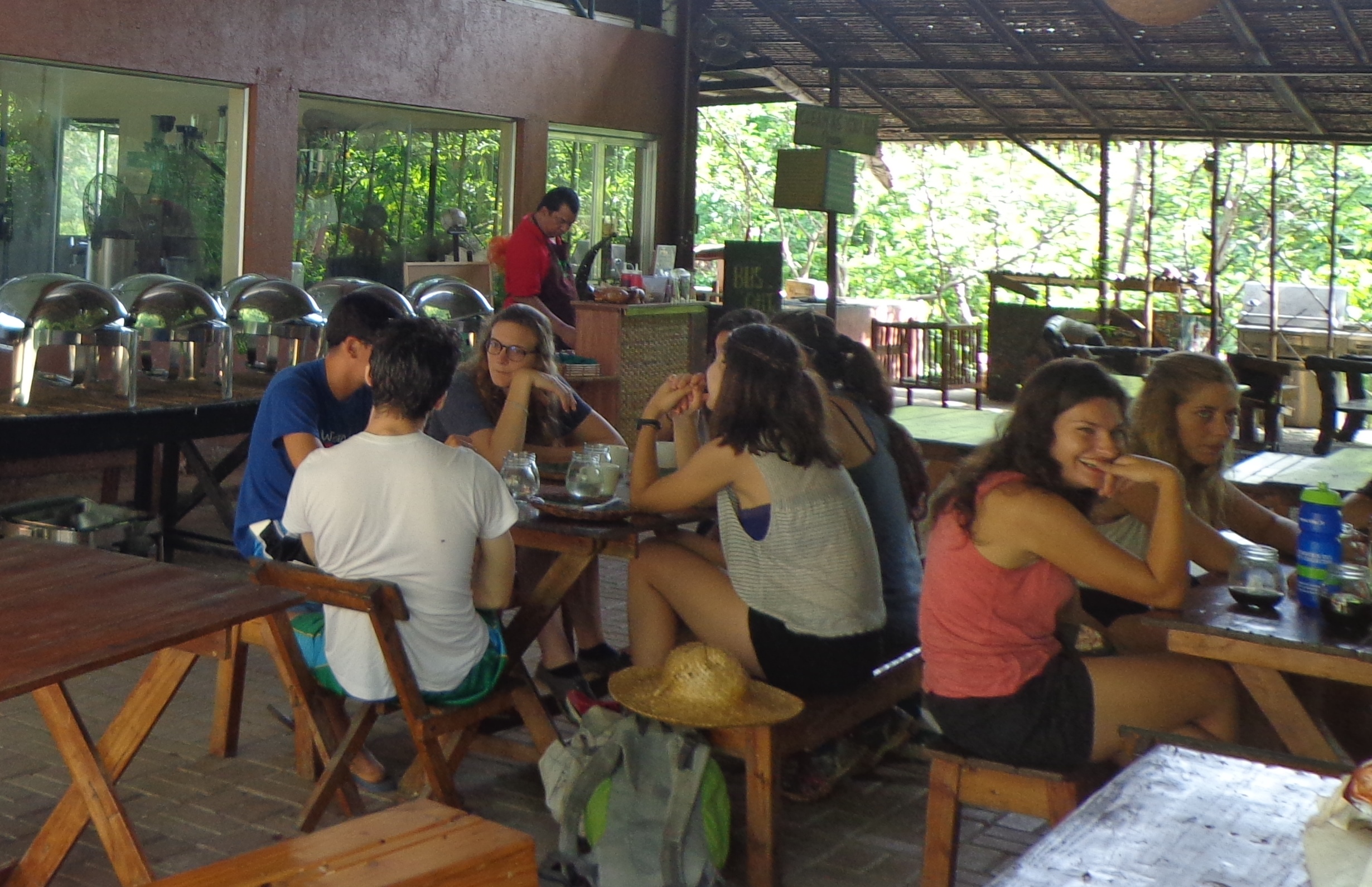- Article
- Industry, Business, Technology
Partnering with Business to End Poverty: Lessons from NGO Gawad Kalinga
April 25, 2017
Gawad Kalinga seeks to eliminate poverty in the Philippines by restoring people’s dignity, forging partnerships with business to help build communities that nurture mutual support and self-improvement.
* * *
Gawad Kalinga (Tagalog for “give care”) is one of the biggest nongovernmental organizations in the Philippines. Starting out as an offshoot of a Catholic lay organization, it was officially launched as Gawad Kalinga Community Development Foundation in 2003. GK, as it is also called, promotes “land for the landless, homes for the homeless, and food for the hungry” in pursuit of its mission of ending poverty for 5 million families by the year 2024. In the process it pledges to “leave no one behind.”
The gross domestic product of the Philippines has grown at an average rate of close to 6% over the past five years. Yet as of 2014, some 25% of the population was living below the poverty line, according to the Asian Development Bank. In Manila and other cities, millions of people live desperate lives in sprawling slums. In such a country, there can be little question that the top priority for social action must be reducing poverty. With encouragement from Gawad Kalinga, many businesses have embraced this priority as their own, recognizing that a larger middle class means a larger customer base. In the following, I would like to explore the means by which GK has enlisted the cooperation of domestic and international corporations in its quest to eradicate poverty.
Background and Philosophy
Gawad Kalinga believes that the key to eliminating poverty is restoring people’s dignity. Accordingly, it focuses its poverty reduction efforts on building neighborhoods and developing communities that nurture mutual support and self-improvement—a process that GK equates with nation building.
Gawad Kalinga’s first undertaking was the construction of a group of “GK villages” to house the poorest of the poor, the inhabitants of Manila’s largest squatter slum. Viewing physical security as an essential requirement for a productive life, GK built decent homes on new sites to replace the shanties and shacks of the slum dwellers. Then it organized the neighborhoods into cohesive communities that provide mutual assistance and support economic independence. This provided a template for hundreds of community development projects. The organization believes that by residing in such a community, people can regain their dignity and find opportunities to escape from poverty.

The founder of Gawad Kalinga, Antonio (“Tony”) Meloto, was born to a lower-middle-class family. Overcoming his humble origins, he earned a full scholarship to attend Ateneo de Manila, the nation’s top institution of higher education. After graduating, he took a managerial job with Procter & Gamble, eventually specializing in marketing and branding. Today he is known inside and outside of the Philippines for his achievements in community building. In 2006, he was awarded the 2006 Ramon Magsaysay Award, known as the “Asian Nobel Prize.”
Meloto saw that poverty “robs people of the capacity to dream.” Moreover, he could see no reason why Filipinos should be destined to endure poverty, given the country’s abundant natural resources and the high potential of its largely English-speaking population. He launched Gawad Kalinga with the aim of empowering the nation’s poor to seize control of their own destiny.
Strategy for Cross-Sectoral Partnership
As someone who began his career at a major corporation, Meloto has been willing and able to forge partnerships with business, and this has become one of the defining characteristics of Gawad Kalinga’s community development program. Moreover, Meloto insists that “Gawad Kalinga is not a charity.” As he sees it, nation building through poverty reduction helps businesses by developing markets for their products.
From the outset, Meloto saw GK’s function as nation building through community development, and he realized that community development would involve collaboration with other sectors—not just government but also the business community. Accordingly, he worked hard to get businesses involved in GK’s programs.
Meloto’s basic approach to enlisting private-sector support was guided by two basic principles. The first was the importance of forming sustainable partnerships with business organizations that shared his mission of nation building through poverty reduction. Accordingly, he resolved to decline one-time offers of financial assistance. Of course, funding was essential, but the kind of nation-building partnerships Meloto envisioned required a long-term commitment.
The second key consideration was benefits of scale. As a marketing expert, Meloto knew that bigger investments in larger projects were likely to yield greater benefits relative to cost—particularly from the standpoint of publicity. By partnering with big companies to carry out large-scale programs, GK could raise its own profile, enhance its reputation and brand recognition, and put itself in a position to work with even larger corporations.
Taken together, these two considerations led Meloto to a strategy of working with businesses’ marketing divisions. This was a pragmatic approach, particularly back when GK was launched. In those days, the CSR departments of businesses operating in the Philippines tended to focus on donations to charitable programs having little or no relationship to their core businesses, and the sums allocated for individual projects were not very large. Marketing divisions were in an entirely different league in terms of the resources at their disposal.
Gawad Kalinga’s community-building partnerships work like this. First, GK negotiates with the local government or private landowners for donations of land suitable for residential building. In the construction phase, partner businesses help defray building costs and supply volunteers to work alongside the residents themselves. The structures generally consist of colorful homes together with a community center and other common facilities. After relocation, corporate partners often draw on their own business strengths to provide ongoing support to the community; for example, a company in the healthcare industry may provide the residents instruction and guidance in health and sanitation. A secure and stable living environment fosters emotional stability and hope in the residents, who become empowered and motivated to do more for themselves. In many cases their lives improve to the point where they are able to put aside money for their children’s education.
Some of Gawad Kalinga’s communities are named after particularly generous corporate partners, including Philippines telecom giant Globe and such global companies as Shell, Hyundai, and Fuji Xerox. Shell Philippines, which has partnered with Gawad Kalinga since the NGO’s inception, has built more than one Shell GK Village and has featured Meloto in its promotional materials. Fuji Xerox Philippines built Fuji Xerox GK Village in 2007. In addition to housing, it built a multipurpose community center, part of which is used as a computer training facility where residents can develop skills to achieve economic independence. (Fuji Xerox has also partnered with Gakken Holdings to provide English-language self-study workbooks to children in GK villages.)
Thanks to such ongoing support from the business community, residents find the strength to escape from the cycle of poverty and live productive lives. They will never forget the names of the companies that helped make such a change possible, especially if they are incorporated into the names of the communities themselves. This is CSR as marketing and market development—a sound investment in the clientele of tomorrow.

The long list of companies that have worked with Gawad Kalinga include Nestlé, Unilever, HSBC, McDonald’s, P&G, IBM, and Pfizer. Involvement in community-development projects provides good material for corporate PR and attracts media attention as well. It boosts the partner business’s reputation and encourages other businesses to jump in. And with more and bigger businesses signing on, the government has more reason to cooperate by providing the land on which to build. The participation of major corporations in big projects has created a virtuous circle, just as Meloto anticipated.
Gawad Kalinga’s community building has spread throughout the Philippines and into nearby countries like Cambodia and Indonesia. To date, the NGO has undertaken some 2,500 development projects, including the rebuilding of communities devastated by typhoons and other natural disasters. As for social impact, the children who grew up in some of the first villages built by GK are beginning to enroll in universities. For a Manila slum dweller to attend a university is a remarkable accomplishment.
Social Entrepreneurship at a “Farm Village University ”
About a four-hour drive from the heart of Manila lies the GK Enchanted Farm, a large agricultural facility built by Gawad Kalinga in 2010. The aim was to create a residential demonstration farm to teach modern agricultural methods to underprivileged youths. It offers a home and highly productive farm employment not just for the rural poor but also to young slum dwellers living on the street or eking out a living as day laborers.
Underlying the project was Meloto’s conviction that the Philippines has failed to capitalize on its inherent potential as an agricultural nation. Despite favorable climatic and soil conditions, agricultural productivity has stagnated. As a result, the country relies heavily on imports for many items that it should be able to produce domestically, including chocolate and dairy products. Meloto was convinced that more efficient land use and an injection of new ideas and technologies could turn domestic farming into a sufficiently attractive profession that Filipinos would embrace it instead of fleeing the country as migrant workers.
The Enchanted Farm styles itself a “farm village university” and a “platform to raise social entrepreneurs.” In addition to providing a theoretical and practical grasp of modern agriculture through courses both in the field and the classroom, it offers a grounding in social entrepreneurship, including such business-school basics as finance and marketing.

At the Enchanted Farm, Gawad Kalinga has taken a page from its own network-building strategy via an internship program for students from top business schools in the Philippines and Europe. On its farm campus, GK is consciously creating a diverse international community in which privileged young people eager to solve society’s problems work and study alongside rural and urban youth struggling to escape poverty. The belief is that their interaction will provide the stimulus for new ideas and undertakings. When poor and rich come together, it creates a life-changing experience for both, asserts Meloto.
The ripple effect has been remarkable. The business-school students who intern at the Enchanted Farm are so affected by their experience and Meloto’s lectures that they tell their parents, many of whom are business leaders themselves. As a result, the reputation of Gawad Kalinga and the Enchanted Farm has spread rapidly among top executives around the world. When then President Benigno Aquino III met with French business executives during a visit to France, several of the CEOs asked what sort of support the Philippine government was providing for GK and the Enchanted Farm, where some their own children had gone to study as interns.
As the program’s reputation spread, corporate participation increased. Shell and Unilever selected the Enchanted Farm as a training site for its management-track employees. They realized that by learning about social problems and sitting down with others to hammer out solutions, these trainees were working from the “outside in” to identify new business opportunities.
Meloto himself was surprised at the speed with which word of the internship spread and elicited visits from CEOs and other global executives. These connections in turn paved the way for further collaboration, opening up new possibilities for GK and its business partners alike.
Keys to an Actively Involved Private Sector
There are any number of NGOs in the Philippines that would love to team up with big business to fight poverty in this manner. What has made GK so successful in getting corporations involved in its programs?
There is little doubt that Meloto benefited from his personal connections, not only within the business community but also with other alumni of Ateneo de Manila. But he himself believes that his biggest advantage was the fact that he himself spoke the language of business. This orientation set Gawad Kalinga apart from most other NGOs in the Philippines, which tend to have a strong religious or charitable orientation. According to Meloto, Filipino NGOs focus on the performance of good deeds almost to the exclusion of practical considerations or the bigger picture, and their communication and PR efforts are lacking. Corporations are unlikely to select such organizations as partners in a project involving a major infusion of funds or other resources. This in turn makes it difficult for those organizations to develop and grow on a sustained basis.
By contrast, Gawad Kalinga has set quantitative goals and drawn up a clear roadmap for reaching them. In addition, it has promoted its activities skillfully. At the same time, the identification of poverty reduction with nation building has made it easier for companies to link GK's philanthropic efforts with their own business principles and strategies.
Social Action as a New Industry
Of course, the business community itself deserves credit for this involvement as well. In a country where about 80% of the population is Catholic, it can be argued that the desire to address social problems is part of the national character. We see this social awareness in the presence of multiple business alliances actively dedicated to social causes—most notably, the 270-member Philippine Businesses for Social Progress foundation. Through such organizations, businesses are constantly sharing information on social problems and the NGOs that address them.
The synergy between a profit-making business and an NGO with expertise in a particular area can create the capacity to solve problems that no single company could address on its own. For this reason, companies and business alliances involved in CSR tend to be on the alert for high-quality NGOs to partner with. The names and competencies of such NGOs go into a file so that a company can easily find an organization to team up with for any given cause. Even outside the country, the top executives of global corporations that do business in the Philippines are quick to gather and act on such information. The development of a strong “outside in” orientation among GK’s partner companies—that is, an awareness of society’s expectations of the corporate sector—certainly accounts in part for their involvement in Gawad Kalinga.
Social problems are extremely difficult to solve single-handedly. To get companies involved in their programs, civic groups must develop the ability to formulate clear goals, draw up a roadmap to those goals, and communicate the pivotal role they have to play in addressing social problems. Businesses, on their part, must become more responsive in locating and selecting the appropriate NPOs and NGOs to partner with.
“I’m a radical optimist,” says Meloto, explaining his faith that the most troubled slums can—and will—be transformed into beautiful communities. Instead of dwelling on the seriousness of a problem, Meloto says, GK focuses on finding solutions. As a result, people who received assistance in the past are providing it today. “Together, we’re changing the world.” For Gawad Kalinga, the UN’s sustainable development goals are merely the codification of objectives they have been pursuing all along. With the support of socially responsible businesses, Gawad Kalinga will continue on its tireless quest to change society and build a new Philippine nation, one community at a time.
